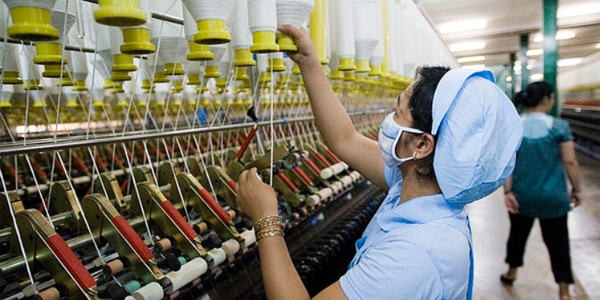
The textile and apparel industry of India, with recent declaration of ‘Special Package’, has an aim to create one crore new jobs in the sector, but according to a recent report by Texprocil – Ernst & Young, only 29 lakh jobs shall be created, owing to the possible technological advancements in the sector. The new technologies would lead to higher efficiency, but will however reduce job opportunities for the people of the country.
Also Read – Texprocil unveils Ernst & Young Report
In the textile sector, particularly in spinning, machines like auto-coners and auto-splicers have reduced human intervention in the work by reducing the ‘man’ requirement from 20 workers to just two. From around 40 workers being employed by the textile industry, the number has now gone down to 25 workers per Rs. 1 crore. For instance, the industry has made a shift from inter-fibre yarn spinning, which was relatively more labour-intensive, to synthetic filament yarn segment that requires less human intervention.
According to a World Bank report, nearly 70 per cent of the jobs in India are at an elevated risk of being replaced by automation. With technology evolving every day, and textile and clothing companies making way to Robotic ways of production, it will lead to more job cut in the future.






